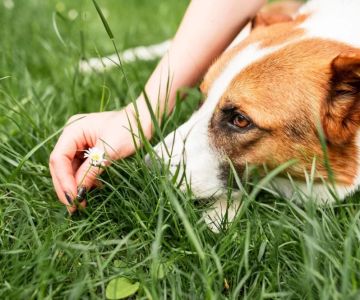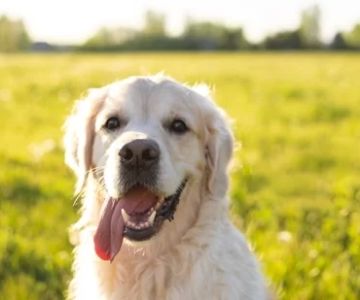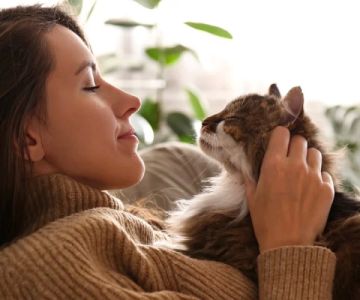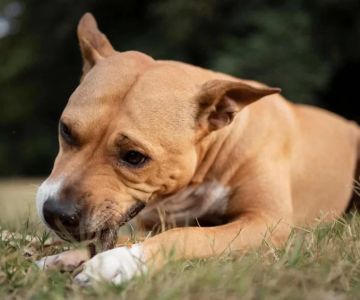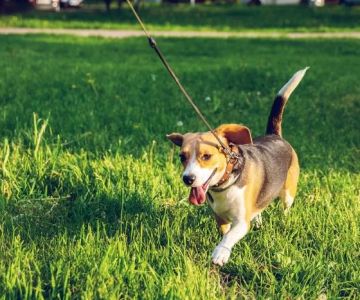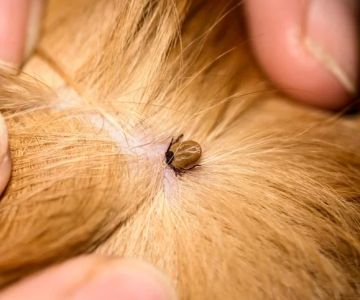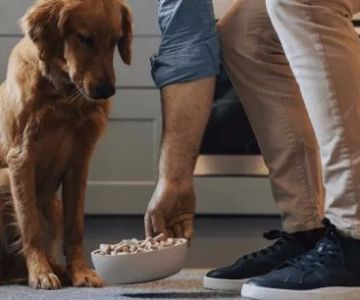How to Care for Your Dog After a Vaccine
- Why Vaccinating Your Dog is Important
- Common Reactions to Vaccines
- Post-Vaccine Care Tips
- When to Contact Your Vet
- Helpful Products for Your Dog's Recovery
Why Vaccinating Your Dog is Important
Vaccination is one of the most important steps in keeping your dog healthy and safe. Just like humans, dogs are vulnerable to a variety of diseases that can be potentially deadly if not prevented. Vaccines help protect your dog from diseases such as rabies, parvovirus, distemper, and hepatitis. These vaccinations not only keep your pet healthy but also prevent the spread of diseases to other animals and humans. For this reason, it’s crucial to stay on top of your dog’s vaccination schedule as recommended by your veterinarian.
Vaccines typically consist of either inactivated viruses or weakened versions of the viruses, which stimulate the dog's immune system to produce antibodies. This way, if your dog is exposed to these diseases in the future, their body can fight the infection before it becomes severe. While vaccines are essential for your dog's health, proper care after vaccination is just as important to ensure that your dog recovers fully and remains comfortable during the process.
Common Reactions to Vaccines
After your dog receives a vaccine, you may notice some mild side effects, which are typically normal and should subside within a few days. However, it's important to be aware of these reactions so you can monitor your dog for any unusual symptoms.

6223 Roswell Rd Unit 365A, Sandy Springs, GA 30328, USA
See Details1. Mild Pain or Swelling at the Injection Site
One of the most common reactions dogs experience after getting a vaccine is mild pain or swelling at the injection site. You may notice your dog licking or scratching the area where the shot was given. This is usually temporary and should resolve within 24 to 48 hours. Applying a cold compress to the site can help soothe the discomfort and reduce swelling.
2. Decreased Activity or Lethargy
Another common reaction is lethargy or a temporary decrease in energy levels. After receiving the vaccine, your dog may feel a bit more tired than usual and may spend more time resting. This is a normal response to the vaccine as the body works to build immunity. As long as your dog is eating, drinking, and alert, there’s no need to worry.
3. Mild Fever
A mild fever can also occur after vaccination. A slight increase in body temperature is a sign that your dog’s immune system is responding to the vaccine. If your dog’s temperature is just slightly elevated and they’re still eating and drinking normally, it’s not usually a cause for concern.
Post-Vaccine Care Tips
Taking proper care of your dog after vaccination is essential to ensure they recover well and stay comfortable. Here are some tips to help your dog through the post-vaccine period:
1. Monitor Your Dog's Behavior
After your dog has been vaccinated, it’s essential to monitor their behavior closely for the first 24-48 hours. This will help you identify any abnormal reactions early. Pay attention to changes in their appetite, energy levels, or signs of discomfort. If you notice any severe changes such as vomiting, diarrhea, or difficulty breathing, contact your veterinarian immediately.
2. Provide a Quiet, Comfortable Space
To help your dog rest and recover, make sure they have a quiet, comfortable space where they can relax without distractions. Avoid too much physical activity or play during the first 24 hours after the vaccine to give your dog time to rest. Ensure that they have access to fresh water and their usual food to encourage them to stay hydrated and nourished.
3. Avoid Overheating
After a vaccine, some dogs can become more susceptible to overheating due to slight fever or mild inflammation. Make sure your dog is in a cool, well-ventilated area, especially if you live in a warm climate. Avoid outdoor exercise or long walks during the first 24 hours after the vaccine.
4. Keep Track of Symptoms
If you notice any changes in your dog’s behavior, symptoms, or overall condition after vaccination, it’s helpful to keep track of these changes. Record any unusual signs such as vomiting, excessive drooling, or loss of appetite, as this information will be useful for your veterinarian if you need to make a follow-up call.
When to Contact Your Vet
While most vaccine side effects are mild and temporary, there are some situations where you should contact your veterinarian. These include:
1. Persistent Vomiting or Diarrhea
If your dog experiences persistent vomiting or diarrhea that lasts more than 24 hours after vaccination, it’s important to consult your veterinarian. These could be signs of a more serious reaction to the vaccine.
2. Difficulty Breathing or Swelling
Swelling at the injection site is common, but if the swelling becomes severe or your dog begins to show signs of difficulty breathing, this could indicate an allergic reaction and requires immediate veterinary attention.
3. Loss of Appetite or Lethargy for More Than Two Days
If your dog refuses food or seems unusually lethargic for more than two days, it could signal a more serious problem. While mild lethargy is expected, prolonged symptoms should be evaluated by a veterinarian.
Helpful Products for Your Dog's Recovery
In addition to following the care tips mentioned above, there are several products that can help make your dog’s recovery after vaccination more comfortable. Some helpful items include:
1. Pet Calming Products
Pet calming products, such as calming collars or sprays, can help alleviate any anxiety or stress your dog might experience after vaccination. These products often contain natural ingredients like lavender and chamomile, which are known to promote relaxation and reduce stress.
2. Recovery Diets
If your dog has lost their appetite after the vaccine, consider offering a recovery diet that is easy to digest and highly nutritious. Specially formulated pet foods are available that help dogs regain their strength and appetite following vaccination.
3. Cooling Mats
If your dog is feeling warm or uncomfortable after the vaccine, a cooling mat can help regulate their body temperature. These mats provide a cool, soothing surface for your dog to rest on and can be especially helpful in warmer climates.
In conclusion, proper care after your dog's vaccine is essential to ensure their comfort and a speedy recovery. By monitoring their behavior, providing a comfortable space to rest, and using helpful products, you can help your dog bounce back quickly. If you ever have concerns about your dog’s reaction to a vaccine, don’t hesitate to contact your veterinarian for guidance. For more pet health tips and recommended products, visit Hidden Brook Veterinary.


